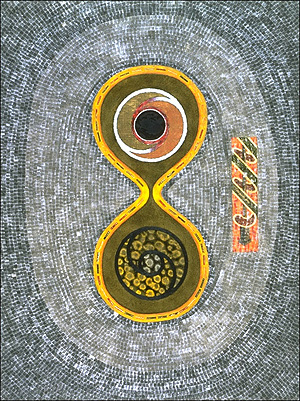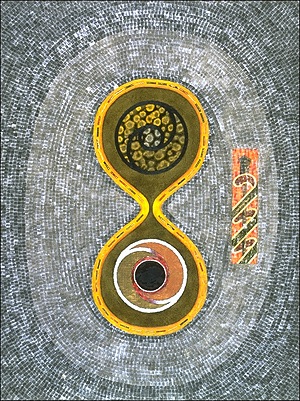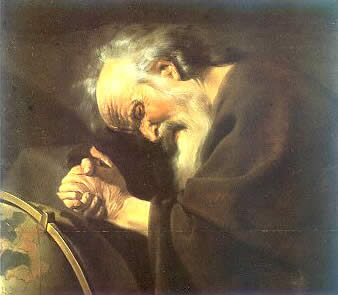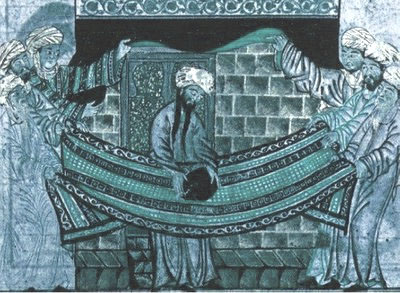The wise (sophos) is one only. It is unwilling and willing to be called by the name of Zeus. —Heraclitus
Zarathashtra worshiped something he called “Lord Wisdom” (Mazda). He called his religion Mazdayasna, which translates to “worship of wisdom.” Heraclitus might have been the first Greek to advocate philos-sophia, or “love of wisdom.”
Heraclitus and Zarathashtra made a God of wisdom. What might they have meant? “Wisdom” is such a commonly used word with secondary shades of meaning. The greek word “sophia” is no less versatile. Heaven only knows the full breadth of the Avestan “Mazda”.
My fat little Oxford Dictionary of Current English provides the following definition:
wisdom • n. 1 the quality of being wise. 2 the body of knowledge and experience that develops within a specified society or period: oriental wisdom.
Alright, so wisdom is primarily a derivative of the adjective wise. That sounds about right. What is wise?
wise • adj. 1 having or showing experience, knowledge, and good judgment. …
I believe this definition does a fair job of breaking wisdom down into its particulars.
Judgment
Good judgment is perhaps the most fundamental aspect of what we think of when we hear the word wisdom. It is necessary because the notion of wisdom depends upon a notion of rationality.
Choice (Action)
Wisdom cannot be automatic or mechanical. It must involve choice. To suggest that any process can be consider wise if that process was not an outcome of some decision is to propose a concept other than wisdom.
Hence, one might rightly say that if freedom is an illusion, so is wisdom.
Action (and wise inaction) are critical to wisdom, of course, but one might argue that so long as wisdom is embodied, it seems that action and inaction are implied in the idea of choice.
Experience & Knowledge
Experience and knowledge are also necessary to the definition, and I don’t think that personal experience and acquired (or a priori) knowledge merge into one, nor do I think that wisdom can be seen as implying one to the exclusion of the other.
Virtue
The adjective good is crucial to the adjective wise, and I don’t think that any specific definition of what is good is necessary to require this. What is wise is dependent upon what is good, regardless of what good is established to be.
To suggest that wisdom could be defined in an amoral context, using a broad, philosophical meaning of moral (ethical, virtuous), would be to violate the general meaning of wisdom, for the word wise must imply judgment that serves the good. To put it simply, it is generally understood that wisdom is a good, virtuous thing. Let’s remember: we are attempting to understand a word, rather than describing an actual phenomenon.
To summarize, wisdom consists of:
- reason (judgment)
- choice; action/inaction
- direct experience
- knowledge (innate & acquired)
- goodness
Can we rightly use these concepts to describe the thought of Heraclitus and Zarathushtra?
With respect to Heraclitus: reason, knowledge, and direct experience were crucial, but the roles of choice and goodness in his thought are debatable. Choice may be permissible to his pantheistic God. The fragments of Heraclitus do not seem fatalistic in their social arguments, so one might claim that choice goes without saying. As for goodness, Heraclitus claims that good and evil are not universal aspects of existence. But would it not have been paradoxical for Heraclitus to tout the virtue of his Logos without considering the Logos—in some sense—good? When he spoke of a universal sophos, he must have been implying a higher good.
Regardless of what attributes the actual Zarathushtra acscribed to his God Ahura Mazda, it can fairly safely be claimed that notions of choice and goodness are fundamental to his religion. There is substantial evidence that Zoroastrianism values reason, but I am not so sure that knowledge and experience are fundamental to Zoroastrianism. Some Zoroastrians may claim that their religion values knowledge, and that it is a very empirical religion, but I am dubious on the suggestion that any traditional religion can be called empirical. Still, if we posit that Zarathushtra, be he real or myth, did worship wisdom to the exclusion of all else, we must incorporate a respect for knowledge and direct experience into his religion, for is it not evident that knowledge and experience are the chief elements of the most primitive notions of wisdom?



